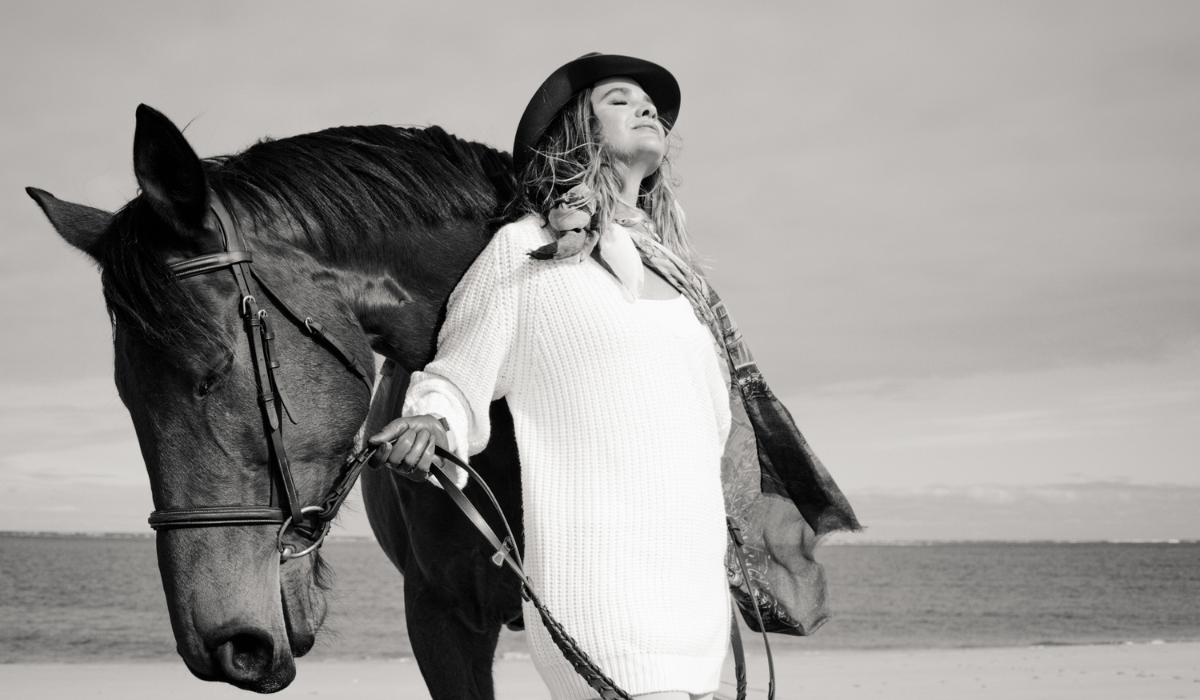
I have a wonderful and fulfilling life. I was thinking about this coming back from California last week when my husband and I had packed a lot of meetings and work-related time into a visit. I knew what I was feeling was a happy tired, but I also felt an internal resetting was needed. As a writer about to launch a debut novel, I felt taut, but I knew I was on my way to recharge.
We drove closer and closer to our summer place, the highway down the center of the Cape narrowed to a two-lane road. The quality of light had already changed to the bright reflected sparkle on this bent arm of land sticking out into the ocean. The sea air was feisty, the fresh breeze zippy and full of sea tang. The closer I got to our small town’s exit, the happier I became.
I know I’m lucky to come here. I think we all should have a contemplative spot: a place where you can go—either a particular spot you can physically visit to unwind, or a mental space to cultivate an inner sense of peace.
It may be only a few seconds of quiet time in your car during a commute, or while doing reps with weights in a gym or on a yoga mat. The rest of the world and what weighs you down should melt away, even if it’s for fifteen minutes. For others, they may enjoy painting, cooking, walking, or knitting. No matter how brief, we all need that feeling of dissociation with the often frantic, frenetic lifestyle we’ve all unwillingly adopted.
I find that I re-tune best by being out in nature. On Cape Cod, in Pleasant Bay, when I get in my kayak, I do what I heard a minister once say: I use my recreation as re-creation. When I pull the green fiber glass shell that will encapsulate me for the next hour to the water’s edge and shove off, almost instantly, my perspective changes. As the distance between me and the shoreline grows, a sense of significance and insignificance merges in me. What had been a cluttered mind of dreaded Zoom meetings and appointments begins to loosen its edge, and as I push against the choppy current, the tension melts away. I allow the part of me that craves instant answers and the impulse to pick up my phone to take a back seat. I allow another part that craves stillness—the right-brained place my painter friend tells me about, where there is a shift to timelessness—to guide my thoughts.
I am paddling, but I’m also transported out of myself looking around, floating within the bay’s water. The Egrets are in the marsh; they lift and resettle as I pass by. The gulls call, but their cawing sound mixes with the water’s lapping on the bow and the hum of an outboard from further up the bay. There is the whiff of the briny seaweed lines and, strangely enough, I smell a cigarette from somewhere carried on the breeze. I let my senses guide me as I drift and paddle, drift and paddle.
I try to let in only the thoughts that are born of what I’m seeing right now, what I’m smelling, what I’m hearing. It could be some sort of “paddler’s high,” but it’s more than just endorphins kicking in. As I float in and out of the light green water over a sandbar or the dark blue of deeper inlets, I return to myself. An internal hum of well-being and rushes of joy.
It wasn’t always the sea air that summoned me. As a child, when I rode my first horse, Rambler, through woods dappled with sunspots, I felt hypnotized by the green forest light. I have my best thoughts outside. My friends call me Gazebo Gal because I like to write sitting out in a gazebo that overlooks the bay. Sometimes, a word or phrase will come to me at the oddest moments. It might be when squinting in the glare as I gather mussels from the beach or just marveling at the fragility of a hummingbird or butterfly.
Now, there’s something about the water—something about being alone without the sound of a motor, something about using my own strength to move my tiny vessel forward—that feels right. I slide the kayak around the bend into the leeward side of the island, and the current softens, the tide slackening. I bob on the swell of a leftover wake, and I feel connected to the earth and the sea. I can see the Atlantic through the break in the dunes of the outer bar of Nauset Beach. The sky is cloudless; a purple fog haze hangs offshore. I feel myself recharging, plugged into a strong power source of creative energy. In these moments, sometimes I’m just soaking in the feeling of calm, and sometimes a question about a plot point in a new book or project suddenly resolves itself.
We sometimes hear it too often that it begins to lose meaning, but it’s true: In order to create, we must be able to find a place to let it all go.
Christy Cashman is a producer, philanthropist, actress, and author of her first novel, The Truth about Horses. She is the founder of YouthINK, a not-for-profit mentor-led creative program geared towards teenagers with a focus on writing, storytelling, and the arts, and the co-chair of Literary Lights for the Associates of the Boston Public Library."creation" - Google News
August 27, 2023 at 05:05AM
https://ift.tt/IhdsCeu
“Recreation is Re-Creation”: Novelist Christy Cashman on How All of Us Can Use Downtime to Stoke Our Creativity - Maria Shriver's Sunday Paper
"creation" - Google News
https://ift.tt/7u2oQa0
https://ift.tt/mSHkCXc
Bagikan Berita Ini














0 Response to "“Recreation is Re-Creation”: Novelist Christy Cashman on How All of Us Can Use Downtime to Stoke Our Creativity - Maria Shriver's Sunday Paper"
Post a Comment